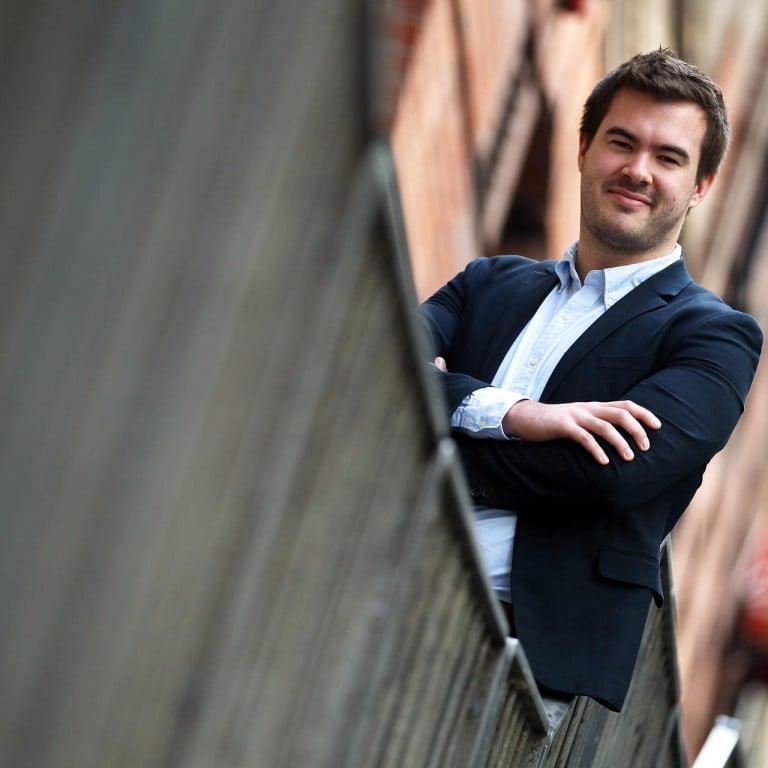
Culture trumps cash for PR man
Harrison Kelly, a rising promoter of cultural events, is in the business for the buzz - notthe money, he tells Liana Cafolla
As the founder of a public relations and consultancy firm that represents publishers such as Random House, Penguin Asia and Hachette UK, Harrison Kelly might be expected to have appropriated some literary airs, but such posturing is anathema to the Yorkshireman.
Kelly says the name of his firm, Flatcap Asia, is a tribute to the no-nonsense, hardworking, straight-talking characteristics associated with north England, from where he hails, and a marker of how he runs his business - with plenty of creativity, buzz and enthusiasm, but definitely no pretension.
There's a lot of value in [the arts], which isn't necessarily financial. Promoting arts and culture is a way of understanding how we live.
There's not a lot of money in it, either, he says, but then monetary compensation was not what attracted him to the business. "There's a lot of value in [the arts], which isn't necessarily financial," he says. "Promoting arts and culture is a way of understanding how we live. It makes us look at the things that happen between [people] that are about being human."
His age - "almost 25" - often comes as a surprise to those meeting him for the first time, and he says his youth may have been a little detrimental to his credibility in the past. But now, with a steadily growing client list and organisations such as the British Academy of Film and Television Arts (Bafta) seeking his services, experience and professionalism - plus a birthday looming - his age has become irrelevant.
This month, Kelly takes on the role of head of public relations to promote the Jaipur Literature Festival, the world's largest free literary festival, which takes place in India from January 17 to 21. It's the type of event that appeals to Kelly because of its impact on society. A literary festival should act as a cultural catalyst and spark debate about authors and their ideas, he says.
His approach to managing the festival is to treat it in the same way as when he's putting on other events, a modus operandi that has won him the confidence of some big-name clients. "I always try to approach a job as an arts event first and a public relations event second," he says.
That approach evolved from the path he took in the business. Kelly has no formal public relations training, but has amassed a broad range of hands-on experience in the arts world, both as a performer and behind the scenes. "When I was younger, I used to do a lot of theatre with the West Yorkshire Playhouse and dance with Yorkshire Dance and Northern Ballet, which is how I got interested in the arts," he says.
At the age of 16, he took part in a show that ran successfully at the Edinburgh Fringe and which was seen by an off-Broadway producer who invited him to perform it in New York. Kelly accepted, and found it a transformative experience. "It was an incredible experience to perform in and choreograph a show in New York at such a young age," he recalls. "That was the moment when I thought I could probably make a living out of this. Anything you want to do, you can do it."
But even with his can-do attitude he was frustrated by the endless patience needed for a career in the performing arts. "I didn't like the idea of being a performer and waiting for other people to say, 'Yes, you can be in my show'. I wanted to create a lot of art or theatre or dance, but I didn't want to wait."
Besides, he says with a grin, he's put on too much weight now to tread the boards himself. Instead, he went on to university, studying for a degree in social policy and politics, and volunteering at arts festivals along the way, including the Edinburgh Fringe. At 21, he came to Hong Kong as an exchange student at the University of Hong Kong and worked as a volunteer for the Hong Kong International Literary Festival and the currently suspended Man Asian Literary Prize, which went on to become his first client, spurring him to found Flatcap Asia in 2010.
The company runs on a shoestring budget, with a staff that fluctuates in number depending on how much work there is. He also recruits interns from the University of Hong Kong. "Paid interns," he says, "which I think is very important because a lot of people don't get paid."
He counts his production of Bafta's first event in Asia as one of the highlights of 2013, and has a host of plans for this year. Top of the list is finding a well-known local "hero client" in Hong Kong to represent. He also plans to start producing his own arts events.
More than half of his business is related to the literary world, and the successes of his clients bring him some of his greatest satisfactions. One of his clients, the recently founded Asia Literary Agency, sold the publishing rights to a memoir by a North Korean refugee for a six-figure sum at an auction in October.
"Being part of the process that gets that story told to the rest of the world - I get a kick out of that. I guess that's why I do it. When you see the client really succeed, you think, 'This is brilliant'."
